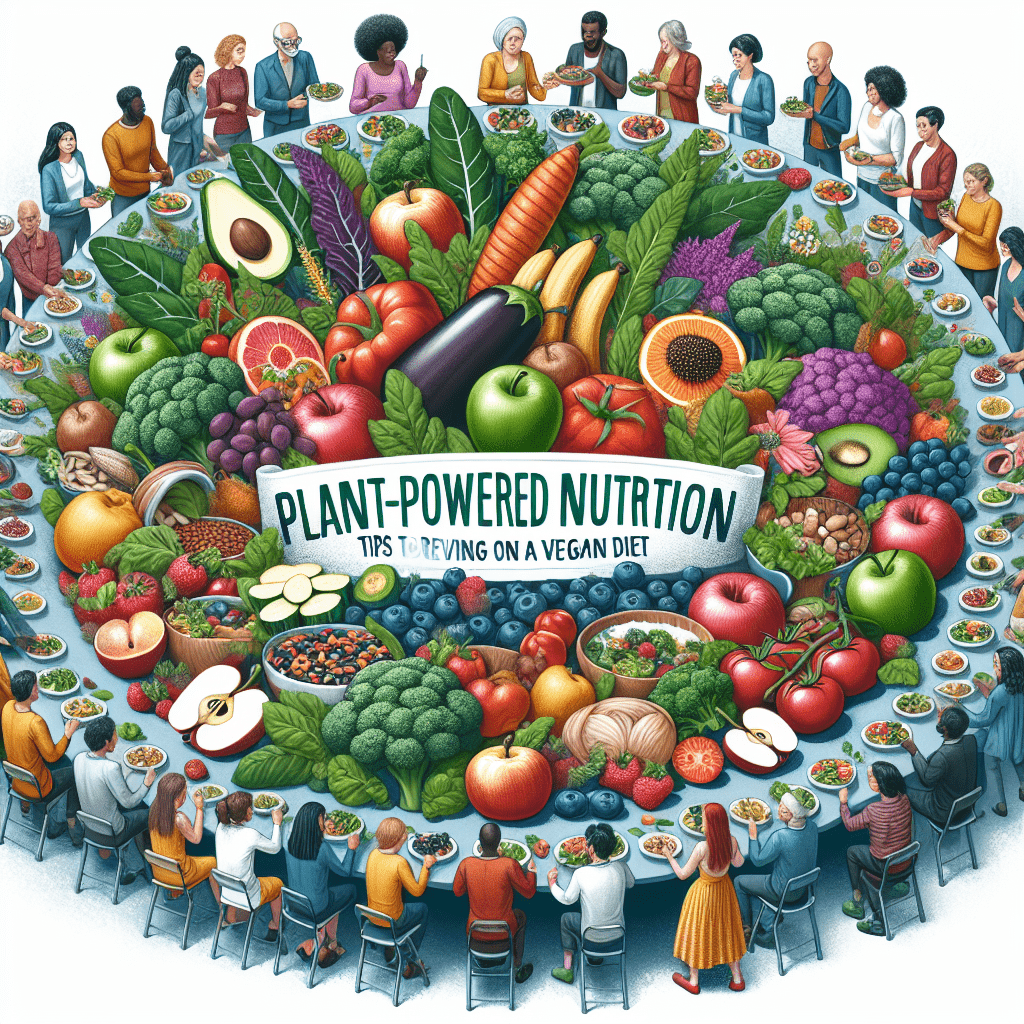[ad_1]
Transitioning to a vegan diet can be a rewarding journey for your health, the planet, and animals. Yet, the shift to plant-based eating requires careful consideration to ensure you’re receiving all necessary nutrients for optimal health. This comprehensive guide will provide you with actionable tips to thrive on a vegan diet, emphasizing the importance of balanced nutrition and how to make plant-powered eating both enjoyable and sustaining.
Nutrient-Dense Foods for Vegans
Incorporating a variety of foods is key to obtaining all the vital nutrients. Focus on these pillars of vegan nutrition:
- Whole Grains: Quinoa, brown rice, and whole wheat provide B vitamins and fiber.
- Legumes: Beans, lentils, and chickpeas are rich in protein, iron, and zinc.
- Nuts and Seeds: Almonds, flaxseeds, and chia seeds offer essential fatty acids, proteins, and micronutrients.
- Fruits and Vegetables: A wide variety ensures a spectrum of vitamins, minerals, and antioxidants. Dark leafy greens are particularly nutritious.
Ensuring Adequate Protein
Protein is a crucial concern for many considering veganism. Plant-based sources like legumes, nuts, and whole grains can easily meet and exceed your protein requirements. Incorporate a variety of these sources to ensure a full profile of essential amino acids for optimal health.
Emphasizing Iron and Zinc
Iron and zinc are two minerals of concern in vegan diets. Opt for iron-rich foods like lentils, tofu, and fortified cereals, and pair them with vitamin C-rich foods to enhance absorption. Foods like nuts, seeds, and whole grains are excellent sources of zinc.
Calcium and Vitamin D
Without dairy, vegans should seek out fortified plant milks and juices, as well as tofu and leafy greens, to meet their calcium needs. Vitamin D can be synthesized from sunlight, but during the winter months, a supplement might be necessary.
Vitamin B12
Vitamin B12 is perhaps the most crucial supplement for vegans, as it is not naturally found in plant foods. Fortified foods and B12 supplements are reliable sources to prevent deficiency.
Omega-3 Fatty Acids
Omega-3s, important for heart and brain health, can be found in flaxseeds, chia seeds, hemp seeds, and walnuts. Algal oil supplements are a direct source of DHA and EPA, the types of omega-3s found in fish oils.
Meal Planning and Preparation
Planning is paramount to a successful vegan diet. Start by mapping out your meals and snacks for the week, focusing on a variety of foods to cover your nutritional bases. Preparing meals in advance can help ease the transition and ensure you always have suitable options on hand.
Eating Out and Social Events
Eating out on a vegan diet has never been easier, with many restaurants offering plant-based options. When attending social events, consider bringing a vegan dish to share, ensuring you’ll have something to eat and introducing others to vegan food.
Key Takeaways
- Balance is key – ensure your diet includes a variety of grains, legumes, nuts, seeds, fruits, and vegetables.
- Pay special attention to protein, iron, zinc, calcium, vitamin D, B12, and omega-3 fatty acids.
- Planning and preparation can significantly ease your transition to a vegan diet.
- Don’t forget to enjoy your food – explore new cuisines and recipes that make plant-based eating exciting and flavorful.
Frequently Asked Questions
-
Can I get enough protein on a vegan diet?
Yes, by consuming a variety of plant-based proteins, you can meet and exceed your protein needs. -
How can I ensure I’m not deficient in vitamin B12?
Incorporate fortified foods or take a B12 supplement to meet your daily requirements. -
Are vegan diets healthy for everyone?
While a vegan diet can be healthy and fulfilling for the majority of people, it’s always recommended to consult with a healthcare provider before making significant dietary changes, especially for individuals with specific health conditions or nutritional needs. -
How can I start transitioning to a vegan diet?
Begin by gradually reducing your intake of animal products while increasing plant-based foods in your diet. Explore vegan alternatives, and consider meal planning to make the process smoother.
[ad_2]

Leave a Reply